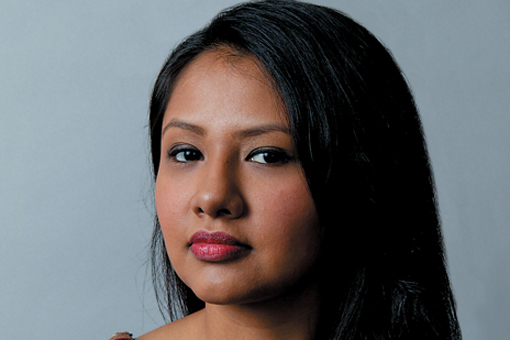Click here to view a video interview with Tania Mattos.
Tania Mattos was watching Telemundo with her mother one day in May 2010 when she witnessed something that changed her life. On screen, four young undocumented immigrants dressed in graduation caps and gowns were being arrested during a sit-in at Arizona Republican Senator John McCain’s office in Tucson. Their fearlessness resonated with Mattos, an undocumented immigrant who left Bolivia at age four and moved with her mother and brother to Queens, New York to reunite with her father.
“That was the first time in my life that I ever saw anybody say they were undocumented on TV,” Mattos, 29, recalls. After years of living in the shadows while friends and classmates earned their drivers’ licenses, got jobs and college scholarships, and pursued paths that were otherwise closed to her because of her status, Mattos decided to do the thing that was most terrifying for a young undocumented immigrant: stand up and be counted.
Since then, Mattos has traveled across the state—and country—to help organize other undocumented youth and empower them to speak out about their status. After participating in a hunger strike organized by the New York State Youth Leadership Council (NYSYLC), an organization led by undocumented youth, Mattos joined the group to fight for passage of the New York version of the federal Development, Relief and Education for Alien Minors Act (DREAM).
The DREAM Act allows young undocumented immigrants in the U.S. to earn temporary residency by serving in the military or earning a college degree. New York’s version would give undocumented youth the chance to apply for state financial aid. As this issue went to press, NYSYLC and other organizations were urging state senators and New York Governor Andrew Cuomo to include funding for the DREAM Act in the state budget.
Mattos eventually became an advocacy coordinator at NYSYLC, where she worked with immigration attorneys and advocated to stop the deportations of undocumented youth. Mattos contacted legislators to enlist support for the National Immigrant Youth Alliance’s “Education Not Deportation” campaign and, by connecting families with legal representation, helped stop dozens of New Yorkers from being deported.
Then she went to New Orleans, where thousands of Latino undocumented workers settled after Hurricane Katrina. “There wasn’t a space for undocumented youth to voice their concerns and opinions,” Mattos says, so she co-founded DREAM Activist Louisiana with DREAM Activist L.A., to organize legal clinics and events that would encourage other young immigrants to come out of the shadows.
Mattos came back from Louisiana a year later with a long list of goals—like writing a “road to college” handbook for young DREAMers to help them turn their obstacles into opportunities, just as she has done. Ineligible for government financial aid, she worked in restaurants to pay for college and graduate school, earning an M.A. in political science from Brooklyn College and securing an internship at the Bolivian mission to the United Nations. Mattos hopes to go back to Bolivia to make a difference one day—as a new citizen of the United States.
That possibility seems to be getting closer every day. Mattos applied for President Barack Obama’s DACA (Deferred Action for Childhood Arrivals) program last year to secure a legal work permit and, as of press time, her application was still being processed. But as Obama and Senate leaders work to push through comprehensive immigration reform this spring, she may be able to secure permanent residency and eventually, citizenship.
“If the federal DREAM Act passes my life would change,” Mattos says. “My idea is that first and foremost, you should be able to be a citizen.”
Watch an AQ Q&A with Tania Mattos below.





